Share

Nature Podcast
How an increased heart rate could induce anxiety in mice
Anxiety can make the heart beat faster, but could the reverse be true as well? That question has been much debated, but hard to test. Now, a team has shown that artificially increasing a mouse’s heart rate can induce anxiety-like behaviours, and identified an area in the brain that appears to be a key mediator of this response. They hope that this knowledge could help to improve therapies for treating anxiety-related conditions in the future.
Research article: Hsueh et al.
News & Views: How an anxious heart talks to the brain
08:32 Research Highlights
The chance discovery of the smallest rock seen so far in the Solar System, and the first brain recording from a freely swimming octopus.
Research Highlight: Asteroid photobombs JWST practice shots
Research Highlight: How to measure the brain of an octopus
In September 2022, NASA’s DART spacecraft smashed into a space rock known as Dimorphos, which orbits a near-Earth asteroid. The aim of the mission was to test whether asteroids could be redirected as a method to protect Earth against future impacts. This week, multiple papers have been published describing what researchers have learnt about the impact and its aftermath. Reporter Alex Witze joined us to round up the findings.
News: Asteroid lost 1 million kilograms after collision with DART spacecraft
Research article: Thomas et al.
Research article: Daly et al.
Research article: Li et al.
Research article: Cheng et al.
Research article: Graykowski et al.
More episodes
View all episodes
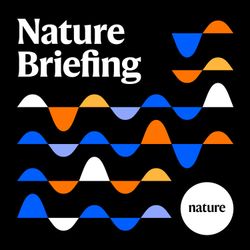
Briefing chat: How hovering bumblebees keep their cool
13:59|00:25 How brains differ by sex and ageNature: Brain differences between sexes get more pronounced from puberty07:14 Bumblebees ‘fan themselves’ during flight to keep coolScience: How do busy bees avoid overheating from flying?Video: Birds gliding through bubbles reveal aerodynamic trickSubscribe to Nature Briefing, an unmissable daily round-up of science news, opinion and analysis free in your inbox every weekday.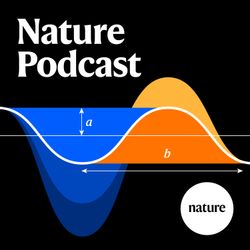
This chunk of glass could store two million books for 10,000 years
21:40|00:46 Data stored in glassNature: Microsoft Research Project Silica TeamNature: Microsoft team creates 'revolutionary' data storage system that lasts for millennia08:09 Research HighlightsNature: Parasitic wasps use tamed virus to castrate caterpillarsNature: Flexible joints: robot morphs into a range of cyborg species10:10 An mRNA vaccine for Triple-Negative Breast CancerNature: Sahin et al.Subscribe to Nature Briefing, an unmissable daily round-up of science news, opinion and analysis free in your inbox every weekday.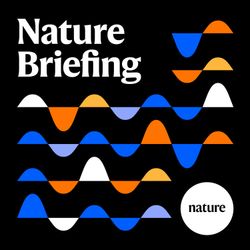
Briefing Chat: Caffeine slows brain ageing, suggests decades of data
09:52|In this episode:00:26 Moderate caffeine intake might reduce dementia risk, study suggestsNature: Coffee linked to slower brain ageing in study of 130,000 people04:15 Using AI to work out the rules of a long-forgotten board gameScientific American: Rules of mysterious ancient Roman board game decoded by AISubscribe to Nature Briefing, an unmissable daily round-up of science news, opinion and analysis free in your inbox every weekday.
These hungry immune cells tidy sleeping flies' brains
25:02|In this episode:00:46 The immune cells that eat waste fats from fruit flies’ brainsNature: Cho et al.10:21 Research HighlightsNature: Beetle is locked into an eternal dance ― with an antNature: Super-sniffer aeroplane finds oil fields’ hidden emissions12:41 Ancient DNA evidence reveals a nuanced story of the Bell Beaker ExpansionNature: Olalde et al.Subscribe to Nature Briefing, an unmissable daily round-up of science news, opinion and analysis free in your inbox every weekday.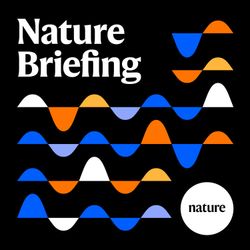
Briefing Chat: 'External lungs' keep man alive for 48 hours until transplant
11:03|In this episode:00:42 External, artificial-lung system keeps patient alive for transplantNature: 48 hours without lungs: artificial organ kept man alive until transplant06:22 How lung cancer in mice hijacks neurons to outwit the immune systemNature: How tumours trick the brain into shutting down cancer-fighting cellsSubscribe to Nature Briefing, an unmissable daily round-up of science news, opinion and analysis free in your inbox every weekday.
These mysterious ridges could help skin regenerate
22:05|00:46 Understanding how rete ridges form in the skinNature: Thompson et al.09:32 Research HighlightsNature: Genetically engineered ‘stinkweed’ comes up roses for making seed oilNature: Largest galaxy survey yet confirms that the Universe is not clumpy enough11:52 The open-source AI that performs scientific literature reviewsNature: Asai et al.Subscribe to Nature Briefing, an unmissable daily round-up of science news, opinion and analysis free in your inbox every weekday.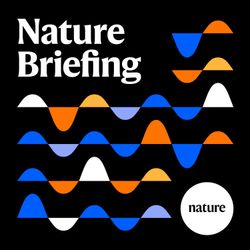
Briefing Chat: What Brazilian centenarians could reveal about the science of ageing
10:21|In this episode:00:36 Study probes genetics of extreme longevityNature: Still working at 107: supercentenarian study probes genetics of extreme longevity05:32 Controlling fluorescent proteins’ brightness with magnetsNature: ‘Remote controlled’ proteins illuminate living cellsSubscribe to Nature Briefing, an unmissable daily round-up of science news, opinion and analysis free in your inbox every weekday.
How your brain chemistry rewards hard work
24:02|00:46 Why completing difficult tasks feels rewardingNature: Touponse et al.11:34 Research HighlightsNature: Disappearing ‘planet’ reveals a solar system’s turbulent timesNature: Getting to the (square) root of stock-market swings13:43 How extreme weather events could threaten malaria elimination effortsNature: Symons et al.Subscribe to Nature Briefing, an unmissable daily round-up of science news, opinion and analysis free in your inbox every weekday.
Audio long read: ‘I rarely get outside’ — scientists ditch fieldwork in the age of AI
18:29|This is an audio version of our Feature: ‘I rarely get outside’: scientists ditch fieldwork in the age of AI